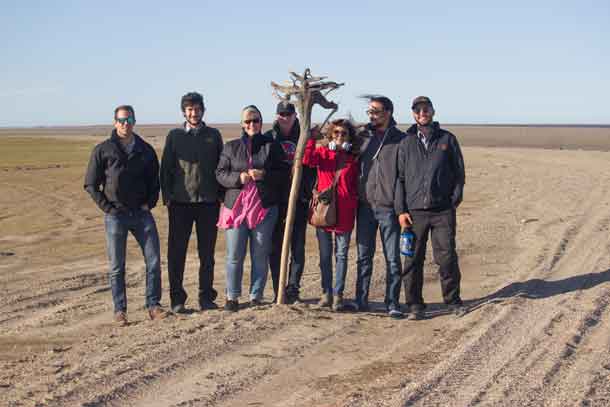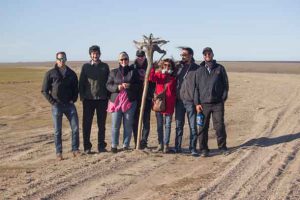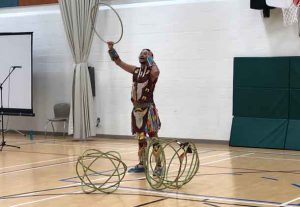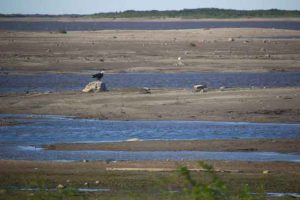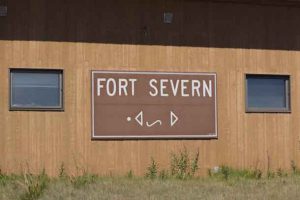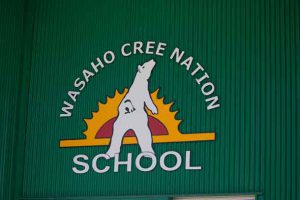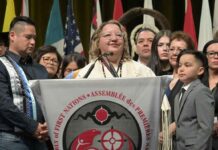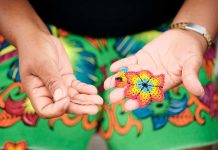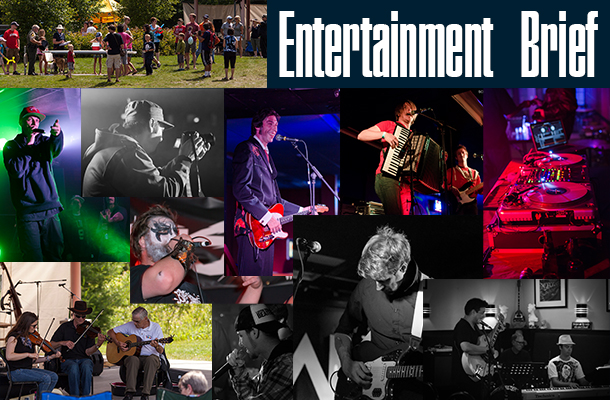FORT SEVERN –North Star Air, and presenters I Love First Peoples, Elevation Pictures and Screen Siren Pictures, kicked-off The Indian Horse Northern Ontario Summer Tour 2018 from Thunder Bay on Saturday, July 21, 2018.
The first screening of the film was in Seine River First Nation. On Sunday, the film was screened in Fort Severn First Nation.
The film will be screened in Kasabonika Lake First Nation on July 23rd, Wunnumun Lake First Nation on July 24th, Sachigo Lake First Nation on July 25th, Muskrat Dam First Nation on July 26th, and Matchewan Lake First Nation on July 27th.
On the tour are special guests including Dallas Arcand Jr. a world-class Hoop Dancer who was featured in the ceremonies at the Seoul Winter Olympic Games and Johnny Issaluk who played Sam in Indian Head.
On Monday at the North Star Air office in Thunder Bay media got the chance to talk with the team behind the tour.
Fort Severn is the furthest north community in Ontario. Located 850 kilometres north of Thunder Bay by air, known by the people as Washaho Cree Nation the community is on the James Bay coast.
This remote community was the second stop on the Indian Horse Northern Ontario Summer Tour.
The tour has a long list of sponsors, including North Star Air and the Northern Stores.
Indian Horse is based on a novel by Richard Wagamese.
Well over sixty-five people came out to the event at the Washaho Cree Nation School.
Indian Head is a film on the history of residential schools, the impact on students and on how one youth found his way playing ice hockey.
The presentation brought out the emotion, and the pain of the residential school era and how the issue is still with many people today. It impacts the lives of many people who are still struggling to recover from the experiences they endured during their time in Residential School.
The entire Residential School process was an effort to in the words of the Canadian Government at the time to “take the Indian out of the child”.
Children were scooped up in their communities across Canada, and transported to the residential schools. They were forbidden to speak their language, not allowed to practice their traditional culture, and the effort of “civilizing” the “savages” meant many children were beaten, abused, and mistreated.
The issue of Residential Schools, which continued on into the 1980s in Canada has been called a cultural genocide.
For many of the students, losing their language meant losing their connection to their grandparents. That loss has had a serious impact on countless families.
Indian Horse is a movie that deserves to be on your must-watch list.
Synopsis of Indian Horse
In late 1950s Ontario, seven year-old Saul Indian Horse is torn from his Ojibway family and committed to one of Canada’s notorious Catholic residential schools. In this oppressive environment, Saul is denied the freedom to speak his language or embrace his indigenous heritage and he witnesses all kinds of abuse at the hands of the very people who were entrusted with his care. Despite this, Saul finds salvation in the unlikeliest of places and favourite Canadian pastimes — hockey. Fascinated by the game, he secretly teaches himself how to not only play but develops a unique and rare skill. It’s as if he has eyes in the back of his head and can see the game in a way no other player can. His talent leads him away from the misery of the school to a Northern Ontario native league and eventually the pros. But the ghosts of Saul’s past will always haunt him. Forced to confront painful memories and revelations, Saul draws on the spirit of his ancestors and the understanding of his friends to gain the compassion he so sorely needs in order to begin healing. Indian Horse is a survivors’ tale that foregrounds the indomitable spirit of North America’s indigenous peoples in the face of aggressive assimilation policies and racism. Saul Indian Horse’s story can be a tool to help foster further compassion and understanding, and in the process, become universal.

